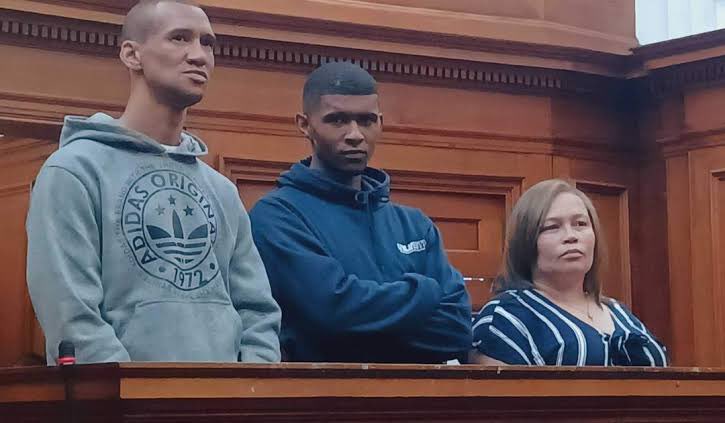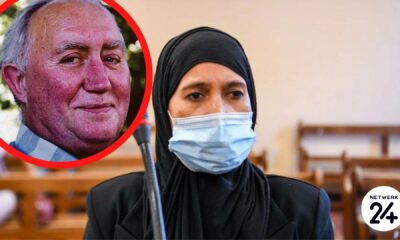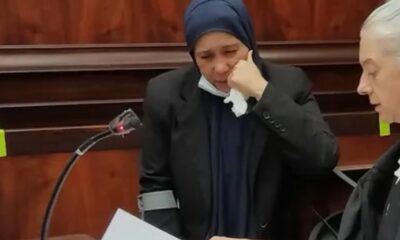News
New Questions Arise in Joshlin Smith Kidnapping Case as Appollis’ Lawyer Challenges Key Evidence

The courtroom drama surrounding the disappearance and kidnapping of six-year-old Joshlin Smith has taken a new turn. In a recent appeal hearing at the Western Cape High Court, Advocate Fanie Harmse, representing Jacquen “Boeta” Appollis, forcefully questioned crucial evidence that had led to his client’s conviction earlier this year.
Spotlight on Overlooked Testimonies
Harmse argued that Judge Nathan Erasmus may have missed vital elements of testimony that could have altered the outcome. Particularly, he highlighted the statements of witness Lourentia “Renz” Lombaard, a Section 204 witness—who suggested that Appollis distanced himself from the alleged plot to traffic Joshlin. This, Harmse claims, contradicts the idea that Appollis was a willing participant in the kidnapping.
“Lombaard made it clear that Appollis did not want any part in the scheme,” the advocate said, “yet the court didn’t give this enough weight.”
He went further, raising concerns over the alleged coercion behind Appollis’ extra-curial statement, which played a pivotal role in the prosecution’s case.
Injuries, Timelines, and Contradictions
The appeal hearing revealed a deeper scrutiny of the physical evidence against Appollis. Harmse pointed to injuries observed on Appollis after his arrest, fresh wounds including a limping gait and an eye injury noted by law enforcement officers. These injuries, Harmse argued, suggested he was harmed after detention, potentially undermining the reliability of his statements.
He told the court, “If Appollis was injured during custody, any confessions made under such conditions must be viewed with caution.”
Judge Erasmus pressed Harmse for specifics on alleged errors, but the lawyer maintained that the court’s treatment of the evidence surrounding Appollis’ injuries lacked clarity and sufficient consideration.
A Larger Conspiracy or a Miscarriage of Justice?
Another thorny issue raised was the role of Phumza “Maka Lima” Sigaqa, a key figure in the initial investigation but who was notably not tried alongside Appollis and others. Harmse questioned why Maka Lima, whose home was reportedly where Joshlin was taken, was released while others faced life sentences.
“This discrepancy raises important questions,” Harmse said. “If Joshlin was indeed held at Maka Lima’s house, why wasn’t he also prosecuted? The State has not satisfactorily explained this.”
The Mother, The Kidnapping, and The Sentences
Joshlin vanished on 19 February 2024, sparking a nationwide search and shock. The court initially found her mother, Racquel “Kelly” Smith, Appollis, and their associate Steveno “Steffie” van Rhyn guilty of kidnapping and trafficking, sentencing them to life imprisonment. The case gripped South Africa, raising public fears over child safety and trafficking rings.
Social media has been abuzz with divided opinions—some call for justice for Joshlin, while others question whether all suspects received a fair trial. Harmse’s appeal has only intensified these discussions, highlighting the complexity of evidence and the importance of judicial thoroughness.
A Closer Look at Justice
As the appeal process unfolds, this case serves as a stark reminder of the challenges within South Africa’s justice system, especially in high-profile, emotionally charged cases. It underscores the need for courts to scrutinize every piece of evidence carefully and ensure that convictions rest on solid ground.
Whether the appeal will alter Appollis’ fate remains to be seen, but for many, the hearing sheds light on the delicate balance between seeking justice for victims and protecting the rights of the accused.
{Source: IOL}
Follow Joburg ETC on Facebook, Twitter , TikTok and Instagram
For more News in Johannesburg, visit joburgetc.com



























